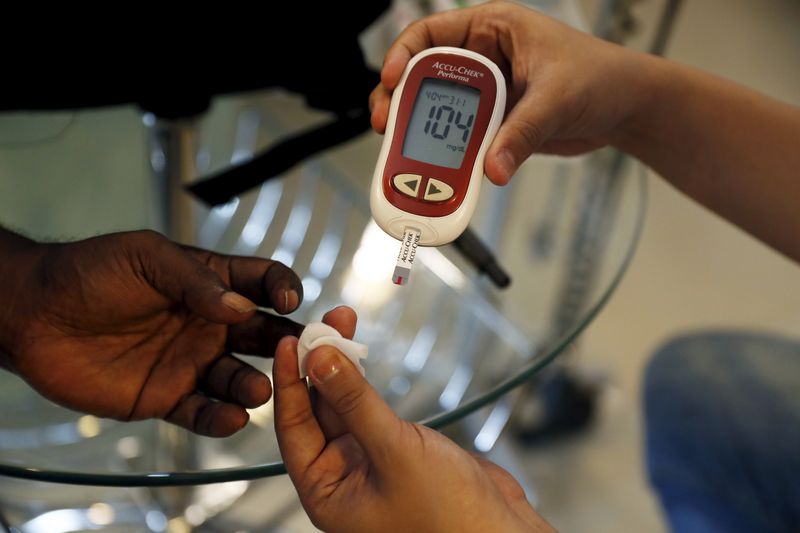Health Rounds: New Type 1 Diabetes Variant Found in Black Patients

New Discovery Could Change Understanding of Type 1 Diabetes in African Populations
A groundbreaking study may reshape how type 1 diabetes is diagnosed and managed, particularly among individuals of African descent. Researchers have found that a significant number of young people in Sub-Saharan Africa with the condition do not exhibit the typical signs associated with autoimmune type 1 diabetes.
In standard cases of type 1 diabetes, the immune system mistakenly attacks the insulin-producing beta cells in the pancreas. This process usually involves the presence of autoantibodies and specific genetic markers. However, when researchers studied 894 volunteers from Cameroon, Uganda, and South Africa who were diagnosed with youth-onset diabetes, they discovered that 65% of them lacked these usual autoantibodies. Additionally, they did not show the genetic predispositions typically linked to the disease or other known forms like type 2 or malnutrition-related diabetes.
“This suggests that many young people in this region have a different form of type 1 diabetes altogether and is not autoimmune in origin,” said Dana Dabelea, the study leader from the University of Colorado Anschutz Medical Campus.
When comparing their findings to data from the U.S., researchers found that 15% of Black Americans diagnosed with type 1 diabetes had a similar pattern—negative autoantibodies and a low genetic risk score. In contrast, White Americans with type 1 diabetes typically displayed the classic autoimmune features, even if they didn’t have detectable autoantibodies.
Clinicians in parts of Africa had long suspected that some children diagnosed with type 1 diabetes did not fit the traditional profile. Most previous studies have focused on white Western populations, which has led to an oversight of regional and genetic diversity in disease presentation.
“These findings are a wake-up call,” said Moffat Nyirenda, a co-leader of the study from the London School of Hygiene & Tropical Medicine Uganda Research Unit. “They challenge our assumptions about type 1 diabetes and show that the disease may present differently in African children and adolescents. We urgently need to deepen our investigations into the biological and environmental factors driving this form of diabetes and ensure our diagnostic and treatment approaches are fit for purpose in African settings.”
Tremfya Shows Promise as a Treatment for Crohn’s Disease
In another significant development, a drug originally developed for psoriasis has shown superior effectiveness compared to existing treatments for Crohn’s disease. Johnson & Johnson’s Tremfya has emerged as a potential first- or second-line treatment for patients suffering from moderate to severe Crohn’s disease.
Researchers conducted two late-stage trials involving a total of 1,021 patients. All participants had moderate to severe disease despite prior treatment with other medications. The results showed that 70% of those treated with Tremfya achieved remission, compared to 63% with Stelara and 13% with a placebo.
Tremfya was also effective in helping patients stop using steroids, which are often used to manage symptoms but can lead to serious side effects. At the end of the 48-week trial, 84% of Tremfya patients had successfully discontinued steroid use, compared to 72% of those taking Stelara.
“Patients receiving Tremfya showed significantly higher rates of endoscopic healing and deep remission, critical indicators linked to fewer disease flares, hospitalizations, and long-term complications,” said Dr. Bruce Sands, the study leader from the Icahn School of Medicine at Mount Sinai in New York.
Tremfya works by blocking a specific subunit of the IL-23 protein, which plays a key role in colon inflammation. It also inhibits CD-64, a protein on immune cells that prevents them from producing IL-23. This mechanism sets it apart from other drugs such as AbbVie’s Skyrizi and Lilly’s Omvoh, which target the same IL-23 subunit but do not block CD-64. Stelara, on the other hand, targets a different IL-23 subunit and a second protein called IL-12.
The U.S. Food and Drug Administration approved Tremfya for treating moderately to severely active Crohn’s disease in March 2025. The drug had already been approved for treating inflammatory bowel disease, as well as psoriasis and related cases of arthritis.
Post a Comment for "Health Rounds: New Type 1 Diabetes Variant Found in Black Patients"
Post a Comment